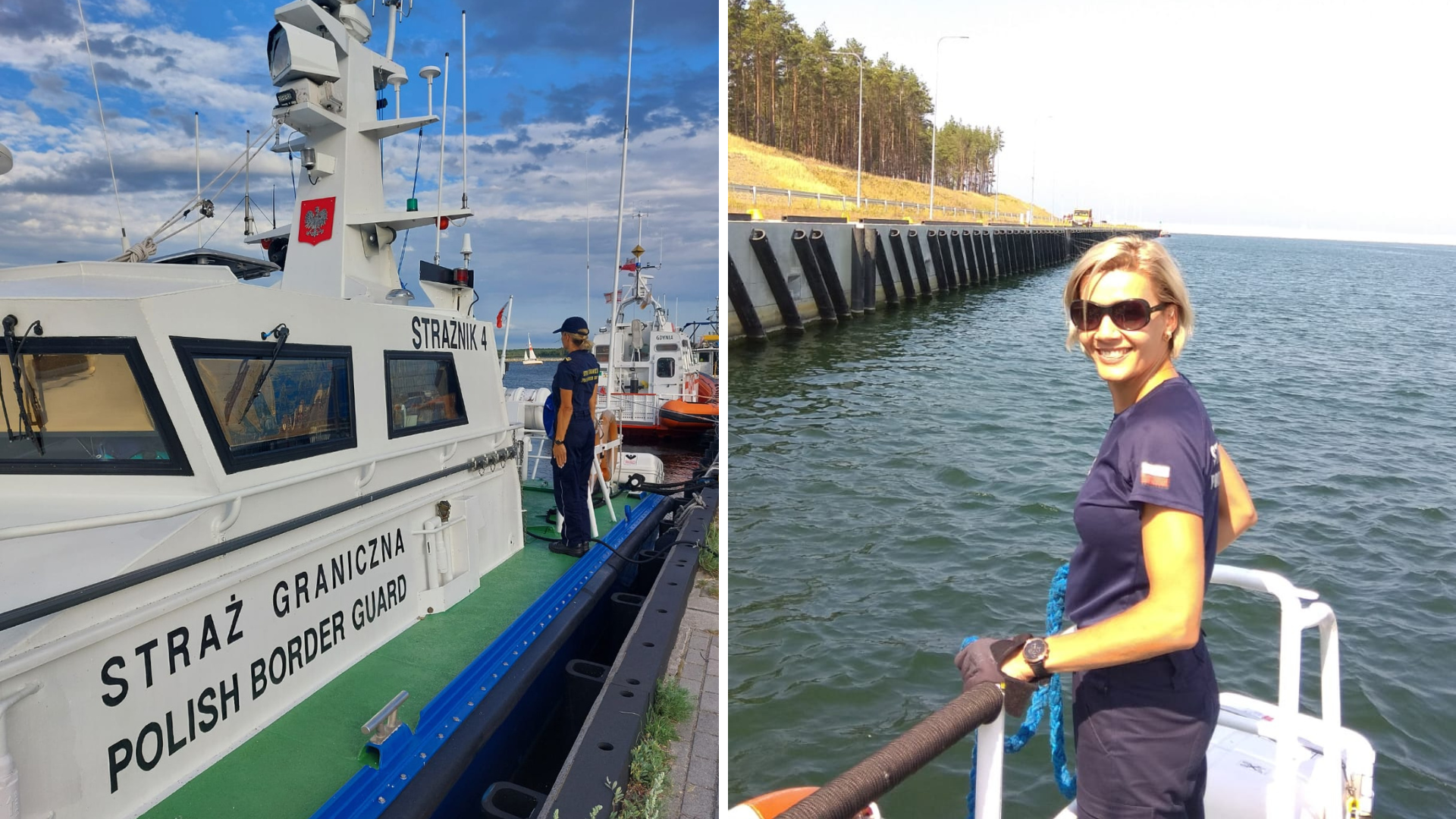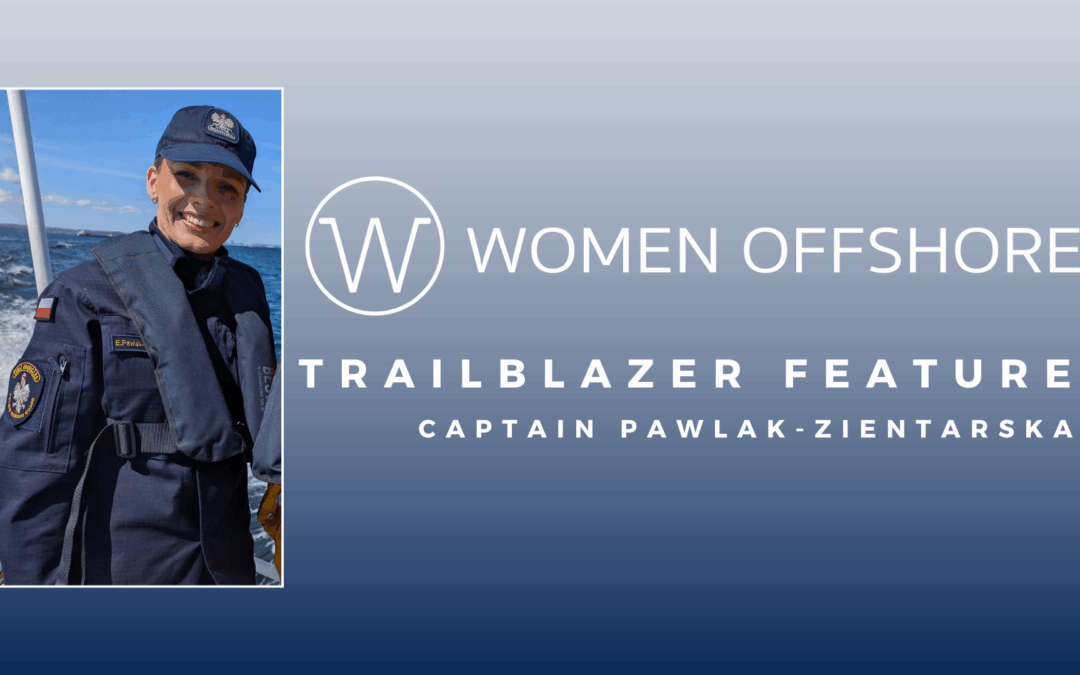Breaking Barriers: The Inspiring Journey of Captain Pawlak-Zientarska, Poland’s First Female Captain in the Coastal Border Guard
In the maritime world, leadership is often defined by skill, courage, and resilience. For Captain Pawlak-Zientarska, the first female captain in the Polish Coastal Border Guard, her journey to the top was shaped by her unyielding passion for the sea and her relentless pursuit of excellence, despite the challenges posed by a traditionally male-dominated industry. Here, she shares her personal story, career journey, and her insights on leadership, resilience, and inspiring the next generation of women in maritime.
A Journey Defined by Passion and Perseverance
Captain Pawlak-Zientarska’s maritime career began not as a leader but as a seaman. She started on pursuit and patrol vessels, gradually working her way up to more complex roles. “My biggest dream was to be promoted to the position of deputy commander,” she recalls. “I always came to service and took part in border operations with great willingness and commitment.”
Despite occasional seasickness and the hardships of life at sea, she continued to pursue her dream with a sense of adventure. After five years, she was promoted to deputy commander, where she was responsible for critical tasks such as sea navigation and vessel inspections during border operations. After a brief hiatus to raise her two children, Pawlak-Zientarska returned to the Border Guard in 2018, bringing with her the same dedication and love for the sea.
When her commander suggested that she prepare to take on the role of vessel commander, Pawlak-Zientarska felt uncertain but decided to take on the challenge. “I was concerned about commanding my colleagues, but with the support of my crew, I realized it was a challenge that would bring me great satisfaction,” she shares. In 2024, she made history as Poland’s first female captain in the Coastal Border Guard.
Inspiration from Childhood to Leadership
Pawlak-Zientarska’s inspiration for pursuing a maritime career came from an early age. “Since I was a child, I knew I wanted to do a man’s job and wear a uniform,” she says. Her love for the sea and a high school teacher who shared his story of attending the Maritime Academy set her on the path toward studying Navigation with a specialization in Search and Rescue.
In a class with only six women, Pawlak-Zientarska was determined to prove that gender would not hold her back. “I constantly wanted to show the men in my class that I could do anything they could,” she says. It was this mindset that fueled her dedication to the field, particularly in challenging situations like sea rescue exercises. “Practice, training, and rescue exercises gave me the strength and desire for more.”
Overcoming Challenges and Building Leadership
For Pawlak-Zientarska, the biggest challenge in her journey was balancing the demands of her career with family life. “The biggest challenge was organizing my work time with family time at home, which wouldn’t have been possible without my husband’s support,” she shares.
But perhaps the most intense pressure came from her role as the first female commander in the Border Guard. She recalls feeling the weight of expectation and the responsibility of paving the way for other women. “The crew is mostly men, so during my first shifts, I was tested and assessed. I focused on the task at hand, making decisions to ensure the crew felt confident and safe,” she explains.
Despite the challenges, her journey is a testament to her resilience and dedication to service. “In difficult moments, I always focused on completing the task properly. When I face a crisis, I think about how much satisfaction my service gives me and how much I love sailing.”
Leadership and Building Trust
For Pawlak-Zientarska, leadership is about more than just making decisions—it’s about creating a supportive and respectful environment for the crew. “I always try to create a friendly atmosphere where everyone feels valued and involved,” she shares. “I listen to my crew and make decisions based on their safety and well-being.”
When asked about what qualities are most important for young women who want to lead at sea, Pawlak-Zientarska emphasizes commitment, knowledge, and communication skills. “The most important thing is to be committed to the work and to keep learning,” she says. “Also, communication is key to leading a crew effectively.”
Advice for Young Women in Maritime
Reflecting on her own journey, Pawlak-Zientarska offers advice for young women who may be considering a career in maritime or offshore industries. “Life at sea is not easy. You need to love it to make it satisfying,” she advises.
If she could go back in time, she would have told herself to “enjoy and learn as much as possible from every day on board.”
Her message to young women is clear: If you’re passionate about the sea and committed to your work, don’t let anything or anyone discourage you. The future of maritime needs more women like Pawlak-Zientarska—resilient, dedicated, and unafraid to break barriers.
Looking Ahead: More Women in Maritime
When asked about the future of women in the maritime sector, Pawlak-Zientarska is optimistic. “Definitely more women are now going to the Border Guard and the maritime sector because these sectors are finally opening up to them,” she says. “There’s still a lot to change, but we’re headed in the right direction.”
Captain Pawlak-Zientarska’s journey from ordinary seaman to the first female captain in the Polish Coastal Border Guard is an inspiring story of resilience, leadership, and breaking down barriers. As more women like Pawlak-Zientarska continue to lead the way in maritime, we can be confident that the future of the industry will be brighter, more inclusive, and full of opportunity for the next generation of women at sea.











Recent Comments